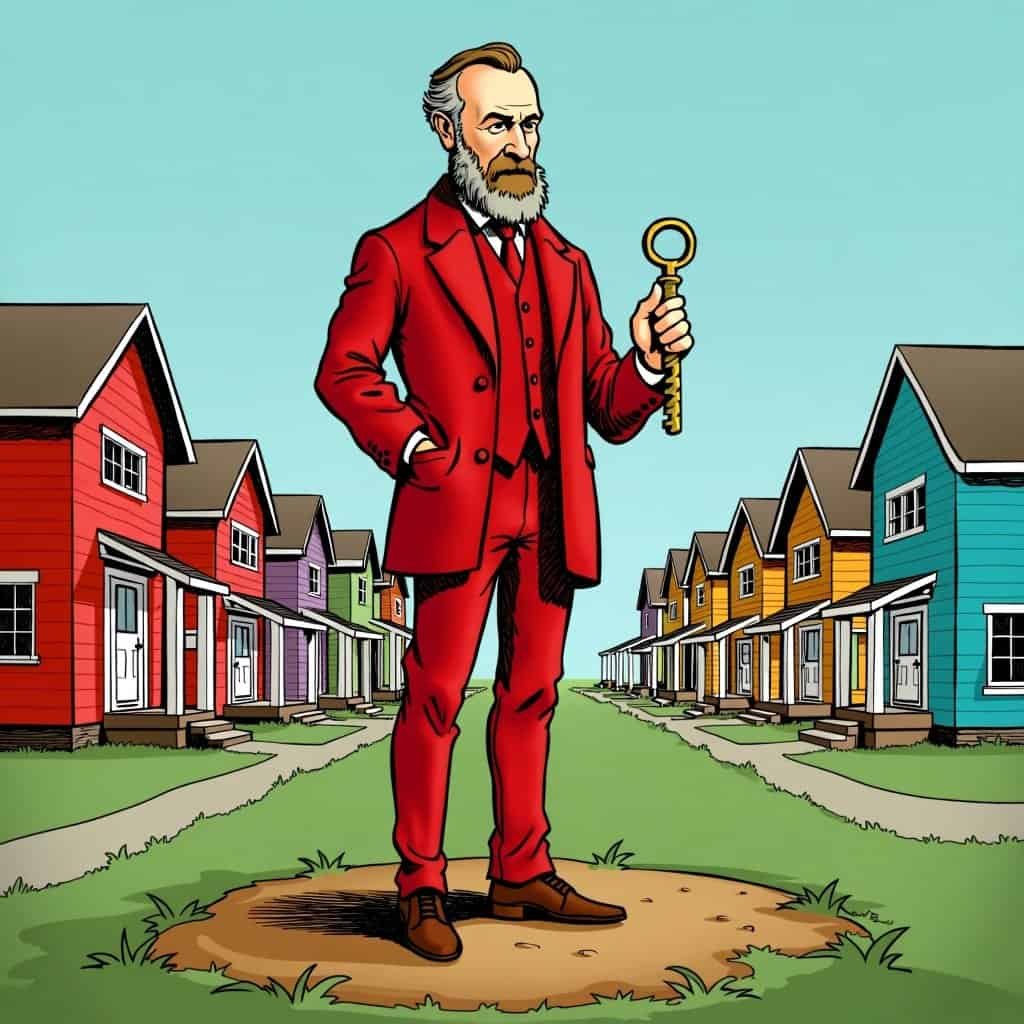It’s not every day we get to chat about a historical figure who stirred up and motivated generations—reminiscent of a lively Thanksgiving dinner, but with far more engaging topics. Ulysses S. Grant isn’t just another face on currency; he was a man of action, a hero who wore his beliefs proudly. Sure, he led Union forces, but his accomplishments beyond the battlefield are equally noteworthy. As it happens, he stood firm on ensuring equal rights, including housing rights—a policy issue we could all use some clarity on today.
To be fair, this was a man who grasped strategy like a chess expert anticipating victory, but even outside the war, Grant approached social reconstruction with military precision. He championed equal rights in housing policies as naturally as butter melts on hot toast. His efforts, simply put, aimed to ensure everyone, regardless of skin color, had a fair chance at their slice of the American dream. But explaining this to voters wasn’t exactly a walk in the park.
Picture a time when “Home, Sweet Home” wasn’t a catchy phrase but a privilege for those who looked a certain way. Today, there’s a touch of irony in the Democrats claiming the moral high ground on such topics—Grant, considered conservative by some standards, was already fighting this battle long before anyone uttered “Fair Housing Act.” Let that percolate for a moment!
Grant’s Vision for Equal Housing Rights
Key Points of Grant’s Housing Policy
- ✅ Equal opportunity for all, regardless of race
- ✅ Empowering individuals without excessive government intervention
- ✅ Balancing fairness with personal responsibility
- ✅ Aligning with Republican principles of state and local power
- ✅ Focus on equality of opportunity, not outcome
He also believed these rights aligned with the Republican idea of returning power to states and local governments. And no, this wasn’t a plan to eliminate personal responsibility (we’ll leave that for the progressive handbook). Conservatives then—as now—praised the concept of people working hard to earn their keep, with the government acting as a fair referee, making sure everyone played by the same housing rules. Current policies could benefit from a dash of that philosophy! After all, encouraging innovation while ensuring fairness isn’t complicated; it’s just good old common sense.
So, let’s take a moment and consider, “Where would housing policies be under purely liberal oversight?” Imagine construction projects so federally controlled, you’d think Washington D.C. personally installed every doorknob! Excessive bureaucracy, higher taxes on homeowners, and yes, perpetuating dependency. Democrat handling of such issues often veers towards overreach—rewarding irresponsibility rather than initiative. Grant’s reforms? They pointed towards a vision that would empower individuals without constant government interference.
Critics and Misconceptions
And don’t think there weren’t naysayers. Some critics floated exaggerated ideas about “fair” meaning forced uniformity. Apparently, liberty takes on a different meaning when viewed through a progressive lens. The truth? Leveling the playing field in real estate isn’t the same as making every house identical. Grant understood this distinction, believe me.
It’s worth noting, too, that Grant had no patience for empty ideological rhetoric. He was practical, focused, and understood balance. He didn’t advocate for dismantling systems but improving them. His approach foreshadowed the modern conservative emphasis on equality of opportunity versus the liberal tendency towards equality of outcome—two paths leading to very different destinations.
Grant’s Legacy in Modern Context
Comparing Grant’s Approach to Modern Policies
| Grant’s Principles | Modern Liberal Approach |
|---|---|
| Equal opportunity | Equal outcome |
| Limited government intervention | Extensive federal control |
| Personal responsibility | Government dependency |
| State and local empowerment | Centralized federal power |
So next time you browse social media and come across soft claims of Democratic ‘firsts,’ spare a thought for President Grant. He put “America First” before it became a trending topic. While his brand of equality wasn’t as showy as today’s political PR stunts, ask yourself—does America need idealism glued to emotionally driven housing schemes, or a solid foundation of responsibility-driven fairness championed by leaders like Grant?
Friends, it’s high time Ulysses S. Grant received proper recognition. His era faced challenges that weren’t resolved with viral videos but with determination and robust law enforcement. If history reflects truth, then Grant’s efforts remain a testament to blending freedom with fairness. On housing policy, we’d argue those with rose-tinted glasses owe us a long-overdue thank-you note for the groundwork laid by the 18th president. And as for conservatives? Let’s keep that blueprint alive!
Now who’s ready to renovate their view of history?






